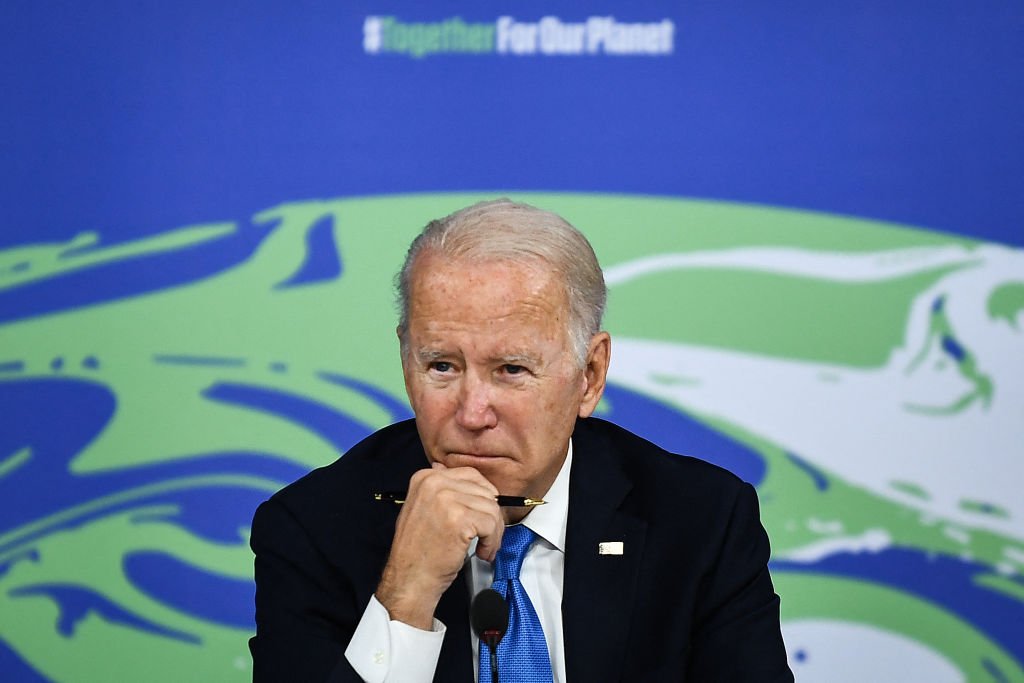For a policy that requires sacrifice, at least for the masses, the climate agenda lacks one critical element: public support. Even in ultra-green Europe, there is a growing resistance among politicians and the public towards extreme climate policies. In America, too, climate scepticism is growing. Given that Joe Biden rolled out new pollution standards for non-electric cars last week, this public shift should provide discomfort among the Democratic establishment.
While most Americans concede that climate change is real, it’s not much of a priority: only 2% rate it as their major concern, according to Gallup, well below the figures for immigration, inflation, government competence and reducing poverty. These sentiments are even more pronounced among working-class voters: even as the Biden administration expends hundreds of billions in taxpayer funds to “green projects”, the average American doesn’t want to spend more than $2.50 a week to combat climate change.
Now, instead of mobilising the masses, the climate lobby increasingly rejects the idea of popular consent. In the EU, the US and individual states such as California, vague legislative goals are left to “experts” for implementation. Aware they are unlikely to get public backing for such things as electric car mandates, consistently higher energy prices or the removal of gas stoves, the climate lobby seeks to employ the bureaucracy — in concert with academics and nonprofits — to impose policies which lack public support.
Some climate activists see the Covid-19 lockdowns as a “dry run” for future action. Officials at the United Nations endorse this concept, embracing the pandemic as a “fire drill” for what must happen to meet climate goals.
But perhaps the more relevant model may be that of the “corporate state”, most associated with the fascist regime of Benito Mussolini. Some might see Donald Trump as the poor man’s Il Duce, but the powerful alliance of the executive branch with a handful of ultra-rich, ultra-powerful companies is more reminiscent of the corporate state.
In 2020, Biden raised record sums from the corporate elite, notably the tech oligarchs and their Wall Street allies. This year will likely bring unprecedented financial support from these same players to the President’s campaign. This interplay between big corporate interests and activist bureaucracies now constitutes what Bjørn Lomborg has labelled the “climate-industrial complex”.
Once re-elected, Biden (or his advisers) may try to push this agenda without much concern for public opinion. He could implement what Eric Heymann, a senior executive at Deutsche Bank, calls “a certain degree of eco-dictatorship”. This reflects a change in elite opinion towards what two German observers describe as a “political ideology that questions the foundations of pluralism and democracy”, and which instead favours a post-national “politics of identity and minority entitlements” and a global green regime.
To achieve their goal, climate activists can employ technological weapons not available to Mussolini in his failed efforts to get Italians in line with his appetite for war. Already some websites censor or discredit even the most credentialed and moderate climate sceptics, who question the climate change narrative much as they did during the pandemic. Climate activists, funded by billionaires, are even pressuring television stations to censor ads criticising Biden’s electric car mandate.
In the future, people could find themselves in violation of the law if, for example, their cars report too much mileage, while their energy use will be both closely monitored and rationed. Such policies would require a permanent mobilisation of executive power, making democracy necessary roadkill on the road to an imagined green utopia.











Join the discussion
Join like minded readers that support our journalism by becoming a paid subscriber
To join the discussion in the comments, become a paid subscriber.
Join like minded readers that support our journalism, read unlimited articles and enjoy other subscriber-only benefits.
Subscribe